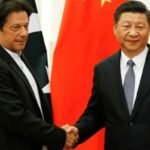Pakistan shares a long history with the International Monetary Fund. As we all are well aware of Pakistan’s shaky economy as Pakistanis have been the victims of its aftershocks. Pakistan to stabilize its economy and fulfill the needs of the state has been seeking loans from IMF for nearly 50 years. Ye hoye na baat… even in contemporary times Pakistan seeks loans from IMF. However, recently, an announcement was made regarding Pakistan’s upcoming plans to end IMF’s Debt of almost half a century. This will set the country on the path of self-sufficiency.
IMF’s equation
IMF’s bailouts have been long criticized by many Pakistani academicians and politicians. This criticism is not without strong evidence demonstrating that IMF loans are compromising Pakistan’s sovereignty. Pakistan has received almost 20 bailouts over 50 years. Just imagine for 20 times, IMF dictated our economic policies. We can never decide whether the IMF’s loans are a blessing or a curse. Though, IMF has lent us a huge sum of loans which have had helped Pakistan a lot. Borrowing loans from IMF and using them to bring economic prosperity, sounds good. But we forgot one thing nothing in this world is for free especially in the international world.
We need to remove the rose-tinted glasses to see that what we deem as good might not always be. IMF loans though look attractive but have repercussions for the country seeking them. We need to critically evaluate whether a loan we are seeking is worth it or not? Will we be able to return the debt? Do we have the right policies that will generate revenue equal to the bailout?
Pros and Cons of IMF loans
Pros
- IMF loans help even out the foreign exchange reserves
- Restricts government from spending on less or non-revenue generating projects and sectors
- Introduces new tax schemes to enhance revenue generation
- Resolves some of the issues of balance of payment
Cons
- Public Sector development programs are sidelined
- Currency depreciation
- Restricts government interference in the financial market
- External force manipulating country’s policies
- Compliance with harsh conditions and requirements to seek the bailout
In the short run, these loans could produce fruitful results but in the long run, these loans will appear as burdensome as they are for Pakistan. There is always a debt sword hanging on Pakistan which will keep the country from becoming independent.
IMF-Free Future
Dair aye durust aye. We understand that knocking at IMF doors was a desperate move in desperate times. Despite, Prime Minister Imran Khan’s promises to never seek an IMF loan made he take some U-turns. Desperate times desperate measures. Nonetheless, Pakistan’s government is putting a plan into action that will help the country end 50 years of IMF debt. Pakistan is adopting the approach of sustainable economic growth by reducing the deficit gaps and making use of capital markets.
Shaukat Tarin, Pakistan’s Finance Minister, has presented a plan for cutting down the budget. Pakistan’s current budget is 6.1% of GDP, he aims at reducing it to 5%-5.25% of GDP. This will be put into action by July 1st, 2022. The plan also intends at enhancing economic growth from 5% to 6%. According to Shaukat Tarin “If we start generating 5%-6% balanced growth, which means sustainable growth, then I don’t think we need another IMF program.” Finance Minister also mentioned the ESG-compliant Eurobond, which will help him raise $1bn in March.
Pakistan is planning on taking the following steps to become debt-free:
- A more focused export policy aimed at enhancing exports.
- Improving the technology sector to attract global investments for Pakistani startups.
- Providing incentives to sectors for generating revenue.
Pakistan’s current Finance Minister, Shaukat Tarin Sahab denies being an IMF puppet. Even in the recent conditions given out by IMF, Tarin introduced some changes to it. In a statement, Tarin said, “We are trying to now take those steps, which are going to put this economy on an inclusive and sustainable growth path.”
He also said that “Once it gathers momentum and is sustainable, then I think we will probably see 20-30 years of growth.”
We hope Pakistan rides on the path of self-sufficiency instead of relying on IMF. This will help the country regain its self-respect and gain popularity in the international arena too.
IMF Approves Loan Of $1 Billion After Review





